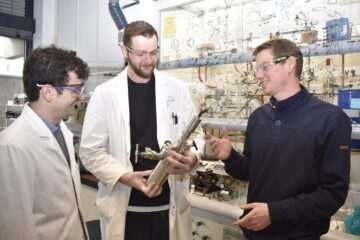Prostitutes face prison because of government’s attempts to ‘help’ them, says researcher

The use of Anti Social Behaviour Orders (ASBOs), Drug Treatment Orders and other measures designed to help women in the sex industry could lead to more prostitutes being jailed now than fifty years ago, a researcher has claimed.
Dr Jo Phoenix, a leading sex crime researcher at the University of Bath, warned that a government strategy which was supposed to help prostitutes onto drink and drug rehabilitation programmes was in fact just a “crackdown” against them.
Speaking at the Sex as Crime conference in Birmingham tomorrow (5 April), Dr Phoenix said that the help being offered is backed up by criminal justice sanctions which ultimately make it harder for women to leave the sex industry, if only because they have a criminal record.
She used the example of ASBOs, the breach of which can result in up to five years imprisonment.
The Sex as Crime conference is being held at the Birmingham Conservatoire, UCE Birmingham, and is organised by the British Society of Criminology and the British Sociological Association.
“The Home Office’s new strategy offers less support and more punishment to prostitutes even though, quite perversely, it looks from the outset like the opposite is true,” said Dr Phoenix from the University of Bath’s Department of Social and Policy Sciences.
“By any other name it’s a crackdown on prostitutes, but has been billed as something entirely different.
”The concerns expressed by prostitutes at the time this strategy was announced look as though they are well founded.”
The new strategy, introduced by the Home Office earlier this year, encourages police to work more closely with charities running safe houses, sexual health outreach programmes and drug and alcohol treatment programmes to help women get out of the sex trade.
As part of this process, women prostitutes can be bound by ASBOs to attend programmes designed to encourage them to get help with drink or drug problems.
When they break these ASBOs, often through desperation caused by the situations they are in, they then face criminal proceedings in court which can lead to prison.
“This is the first time that we have seen women going to prison for prostitution in a generation,” said Dr Phoenix who has researched prostitution and sex crime in the UK for the past six years.
“Many of the women I speak to through my research have become involved in the sex trade through abject poverty and sheer desperation.
“Rather than helping them, the new strategy will give them a criminal record which will make it even harder to leave the sex trade once they are freed.”
About 80,000 women in Britain work as prostitutes, and half of those are under 25, the Home Office estimates.
Media Contact
More Information:
http://www.bath.ac.uk/news/articles/releases/prostitution050406.htmlAll latest news from the category: Social Sciences
This area deals with the latest developments in the field of empirical and theoretical research as it relates to the structure and function of institutes and systems, their social interdependence and how such systems interact with individual behavior processes.
innovations-report offers informative reports and articles related to the social sciences field including demographic developments, family and career issues, geriatric research, conflict research, generational studies and criminology research.
Newest articles

Efficient, sustainable and cost-effective hybrid energy storage system for modern power grids
EU project HyFlow: Over three years of research, the consortium of the EU project HyFlow has successfully developed a highly efficient, sustainable, and cost-effective hybrid energy storage system (HESS) that…

Safer alternative for an explosive reaction
The chemical industry has been using a reaction with explosive chemicals for over 100 years – now Mülheim scientists have discovered a safer alternative. The Ritter Group of the Max…

How immune cells communicate to fight viruses
Chemokines are signalling proteins that orchestrate the interaction of immune cells against pathogens and tumours. To understand this complex network, various techniques have been developed to identify chemokine-producing cells. However,…





















